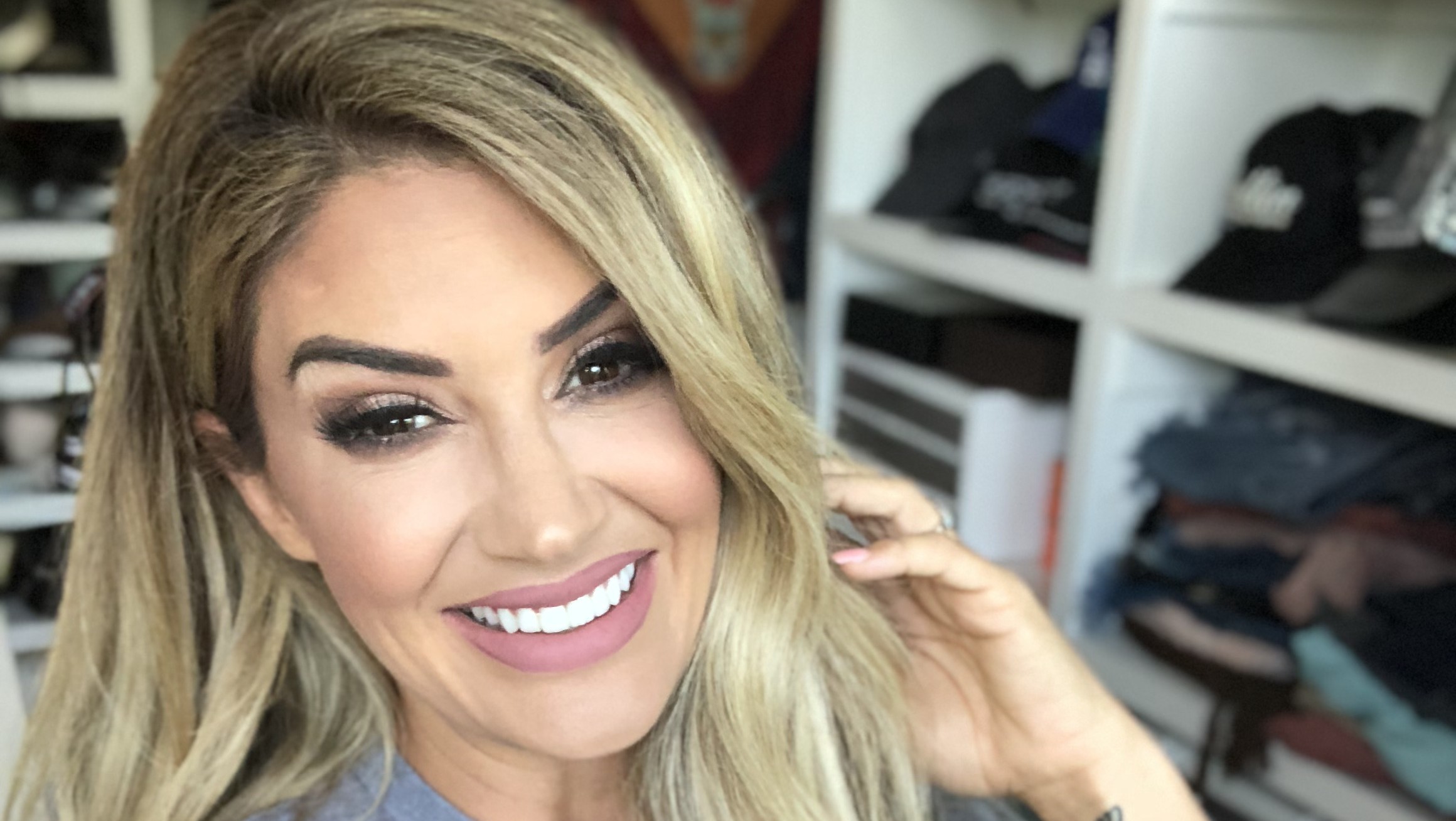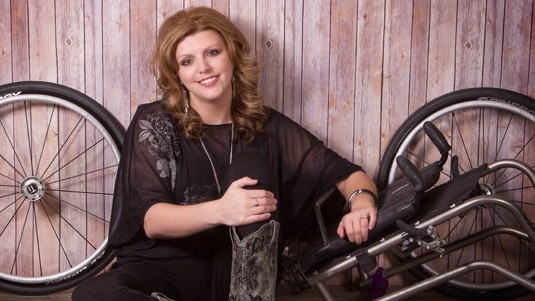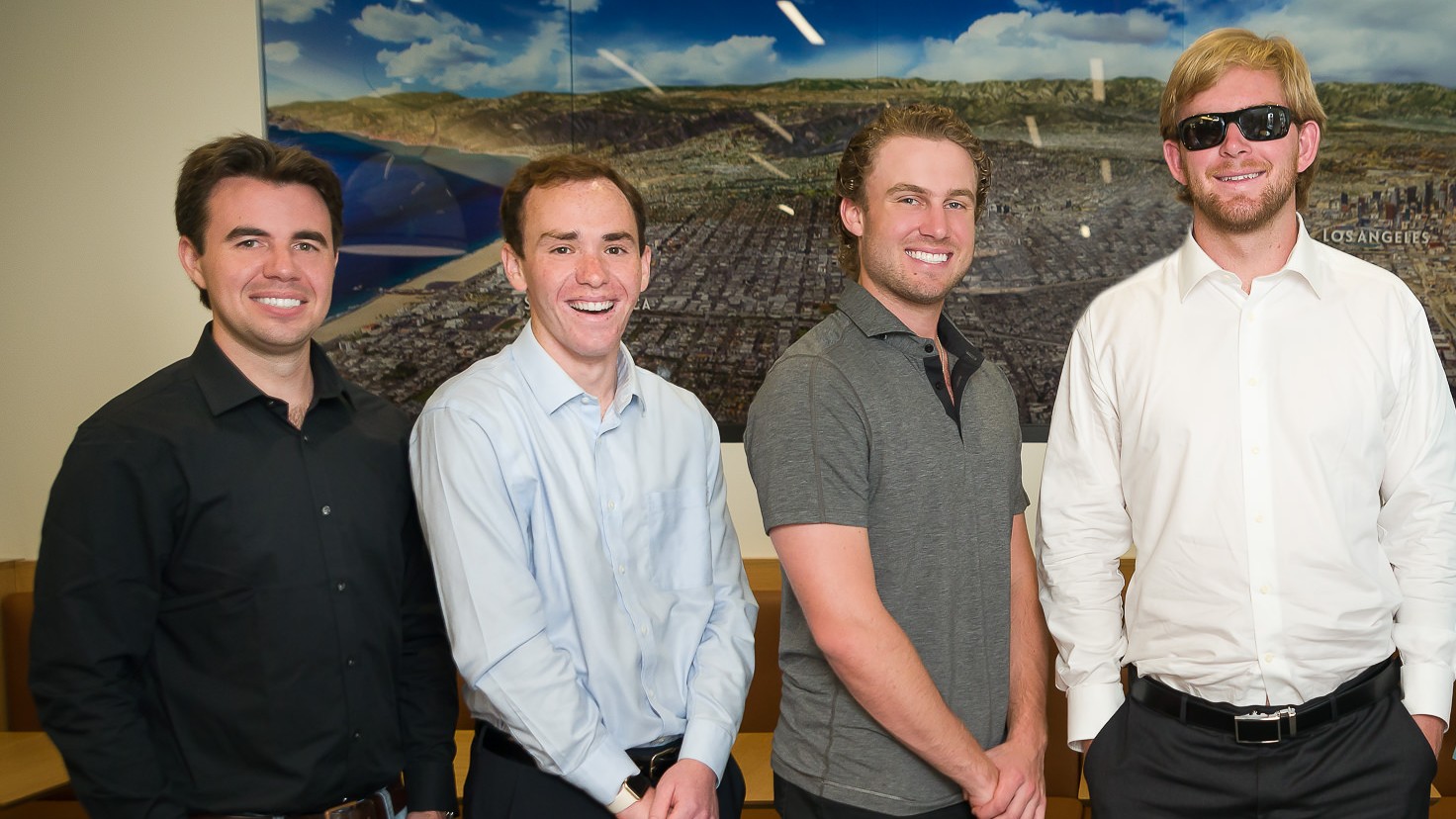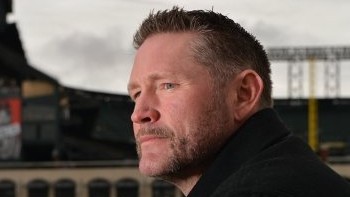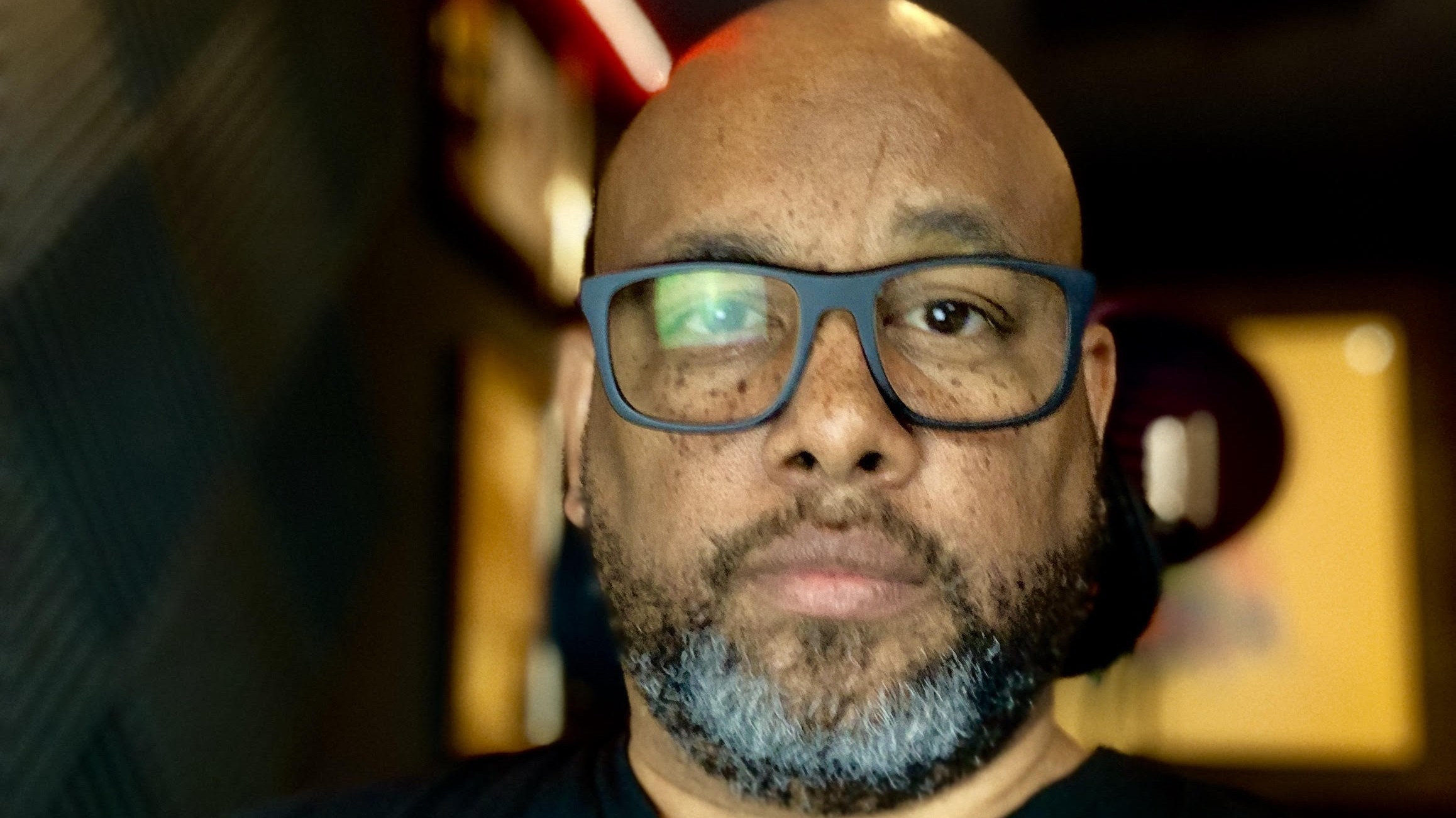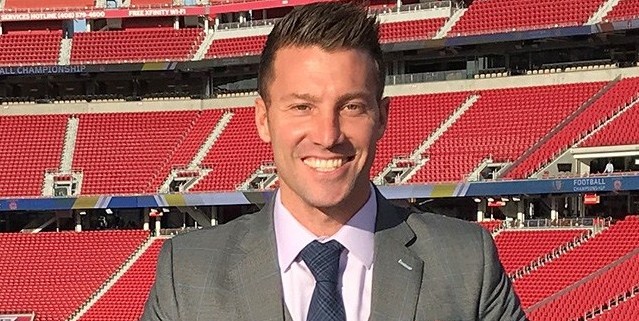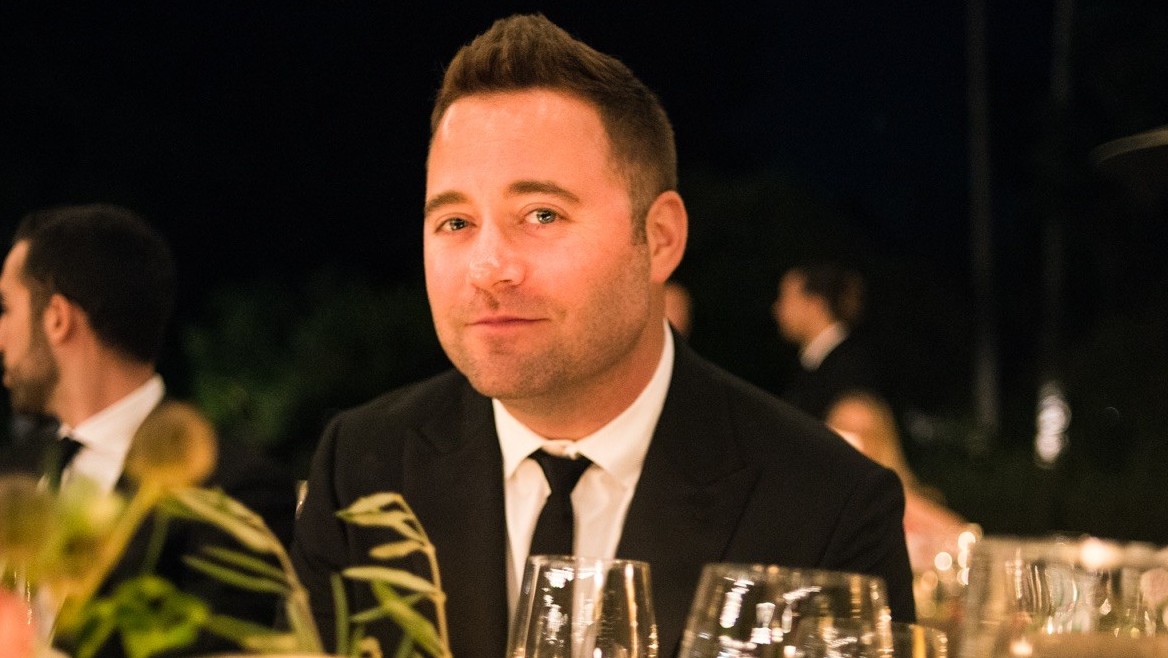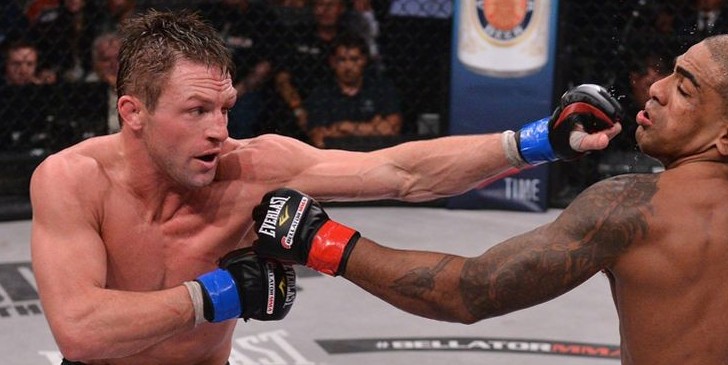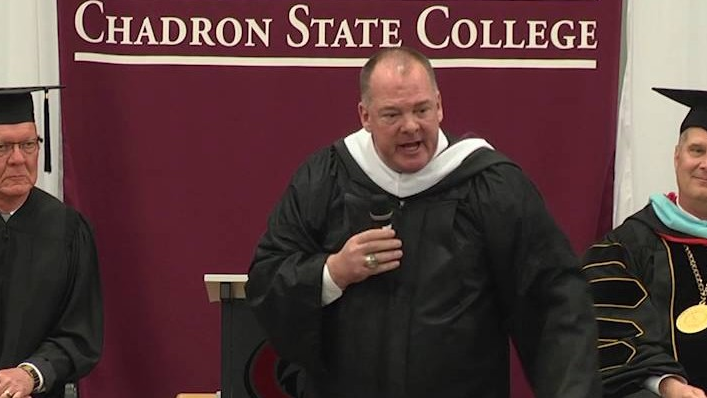
Episode 8 - Lifting Weights & Your Mindset - Chris Carlisle
- By Brendan Egan
- Mar 27, 2019
In episode 8 of Let's Engage, Jake and Brendan engage with Chris Carlisle, Motivational Speaker/Coach and Professional Observer of the Human Condition. He has 11 years teaching experience at the high school level, 14 years coaching at the collegiate level, and 9 years coaching professionals. He is a National Strength Coach of the Year, won 14 College National Championships, and has trained 3 Heisman Trophy Winners.
Listen along with Chris and for more information or to book him for a speaking engagement or experience, visit his profile on Engage.
--
Transcription:
Jake Olson: Welcome to another edition of the Let’s Engage podcast. Thank you for joining us today. I am your host Jake Olson, alongside with my co-host Brendan Egan. We have our producer and somewhat of a technician Daniel Hennes with us as well. We are so happy that you chose to listen to us today. We have a very exciting guest to bring to you. Uh, he's been a friend of mine for a while. I remember he almost broke my hamstrings when I was at the age of 12. Uh, coach Carlisle, Chris Carlisle. Uh, he's, he was with SC, has been with the Seahawks. One of the grandfathers of lifting as you know it today. But coach, how you doing?
Chris Carlisle: Doing Great. How are you doing?
J: I'm doing good. Coach you remember stretching out my hamstrings at the age of 12?
C: You were so tight.
J: I know it was
C: You still are, you can't be, you can barely squat down to snap the ball.
J: Hahaha. It's, it's, it's somewhat true. I, I just remember you after practice, this was after like one of the practices I visited and you had the table outside and you were like hop up here. And oh my gosh, that was one of the more painful experiences of my life.
C: But You keep coming back. That's the thing about it.
J: It's true. It's true. No, I mean, I, I realize, I look, look, I, you don't have to sell me on the importance of flexibility. It's just especially cause I was growing at that time too, you know, I, I just grown like 12, 13 years old. I had grown like four inches or something. So my hamstrings were like a guitar string.
C: Right, right. But you felt better afterwards.
J: Oh yeah. No, I definitely did. No but coach, so tell us, so you're, you're a good southern boy. So you grew up in the south?
C: No, I grew up in the Midwest. My Dad’s uhh. Yeah. I was born in Chicago and my dad's with the railroad. And so we traveled throughout the Midwest. Uh, uh, he built a green line down to Kansas City and then he built a coal line out to Wyoming. And so as he moved with a railroad, so did we, so every, every couple of years he could come into my room with a box and say everything it fits in, it goes. Anything that doesn't, stays. So we, we, we learned how to, to, uh, travel fast and travel light.
J: So did you, did you ever work with him on the road at all or?
C: No, no, no. That was, that was, uh, uh, that was his world. You know, I've got, uh, three other brothers and a sister and where none of us are in that, uh, area of, uh, in that profession. And I'm the only one that got into a coaching and motivational speaking. So it's, you know, we've all taken different paths we’re all, or, you know, if you met us you wouldn't, uh, uh, believe that we are actually family. We're so far different from each other, which is, which is how my parents raised us. They wanted us to be unique individuals and, and so we turned out, you know, the following their plan and it worked great.
J: So when did, when did you fall in love with, with the weight room?
C: Well, Barry Alvarez, the head coach, that was with Wisconsin, he'd been with Notre Dame and Iowa. He was my high school coach and he came out of the University of Nebraska system. And so back in 1978, he came to my high school as our head football coach. And, uh, we won a state championship there and then he went on to Iowa from there. And then Notre Dame. And then like I said to Wisconsin, but he brought with him the, uh, the secret of iron and, uh, and he really changed a bunch of farm kids that were living up in north central Iowa into a very powerful football team.
J: Did, did you, did you find like at an early age that it was like your release?
C: Yeah, I think it's a, it's still, it's still is. It's constantly part of life and part of my son's life. And it's just, you know, it's a great place to be. It's, you know, it's where great friendships go and you get to test yourself. And I think that's in this world today where we're on phones and where everything is by email that we don't get to test ourselves enough. And so I think is one of those things that you get to find out really quickly who you are when you, you have a 600 pounds on your back or 400 pounds over your chest and you've got to go ahead and talk yourself into trusting yourself to go ahead and push that weight off or carry that weight through to the rack.
J: Yeah, I completely agree. I remember kind of starting to lift in high school a little bit but not till my freshman year here at SC, um, while I was working with a guy named Coach Nick. Um, and he kind of taught me really how to kind of experience that in the weight room and have it kind of as an outlet and you know, kind of get through that mindset. And I mean, it changed my life. I mean, I, I absolutely love it, but I mean more so it's just I completely agree with you. And they say, lift weights are your favorite friends, your best friend, because they would never lie to you. And it's true. I mean, no matter if you're white or black or a boy or a girl, whatever, man, they're not going to treat you any different. They were the same for everyone. And you know, you've got to put yourself in, in, in, uh, in kind of that mindset to go ahead and dominate what you're set out to do in the weight room and what you, what'd you put in is what you get out. There's no, there's no cheating, there's no anything like that.
C: Right. And, and you know, if you do cheat, you're just putting yourself at risk. And that's just thing. We, we set up, uh, a teaching hierarchy of, you know, it goes back to my background in education with my Maslow's hierarchy of needs. And you have, you know, in my, my, my teaching, uh, uh, hierarchy I have, how to, which is great technique, how fast is a great movement of the bar. And then how much is how much you lift or how many reps you do or how long you run. But you've got to master the first thing. He got to go ahead and understand how to having great technique because if we have bad technique and you're talking about cheating and lying to yourself and cheating the bar up, then you're not getting the work out of it. And then the speed of the bar and the speed of the movement, it's gotta be, uh, at the same speed that you're going to work at. And then the, how much comes naturally once you have great technique, once you have great movement, great speed, then the, how much comes right along and you run fast, you can jump higher, you lift more weights, but you have to have the first two before you get to the third one.
J: Now, you worked with, you worked with football obviously, but you know, with, with kind of what you're talking about there, I mean, did you ever want to try to work with like Olympic lifters? Yeah.
C: Oh, I've, I've worked with sports all over the, uh, the University of Arkansas. I work with the, uh, basketball team that went on to win the NCAA championship, uh, work with Justin Gatlin and went on to win a Olympic gold medal in, in a hundred meters. Uh, I've worked with volleyball players, soccer players, water polo, all national champions. I've had world champions, Olympic champions. So football is, is just a small part of what, uh, happens in a weight room. You, you have interaction with all the athletes and it's, it really keeps the day of flowing. If you're just dealing with football players, it can kind of get, uh, uh, you know, I wouldn't say boring, but it's the same people doing the same work.
J:Are we boring coach?
C: Well, you know, your, you know, your friends are.
J: Hahahaha
C: You know, but you, you, you kind of get on my nerves Jake. So I love the dog though. You know the dog come into my weight room anytime.
J: Yeah. No, I, I can't believe that you'll, you'll, you'll get them doing the prowlers. Yeah, he'll be the best guide dog and all of all of the, uh, history when you'll be able to pull me, like literally pull me.
C: well, I'll tell you what, he keeps you on the straight and narrow. So He's already got to be the best guide dog in the world because you're kind of shady. So
J: Yeah, that's why I wear sunglasses, you know?
C: hahahaha
Brendan Egan: Hey Chris, I feel like when it comes to weights and working out, you get two polar opposite sides of people either get people like Jake who love it or you get people who just absolutely hate it and it's, it's pretty rare to find a middle ground. Um, how, how do you, how do you deal with people? So dealing with athletes, you probably deal with more folks that like it and hate it, I would assume. But how do you deal with folks that maybe don't like weights that, that want to get into it, but, but their mindset isn't quite there. Is there, there's some tricks and tips that you could share with our listeners?
C: Well, you know, it's, it's, it's that way in all of life. There are people that don't want to get up and go to work. There are people that, uh, don't want it once they get to work, don't want to do the work that, that they are there for, uh, you know, and that's, that's the whole part of really what I've been doing for the last 35 years is motivating people to do with they don't want to do so they can become what they want to become. And that's an old Tom Kauffman quote. And so, you know, motivating an athlete is known. No different than motivating somebody in the classroom or motivating somebody in a conference room or a, you know, any walk of life you want to talk about is that people need to be motivated to be guided, to understand that what they're doing now is going to help them tenfold into the future. So that, that's the easy stuff. You know, that's, that's never been a problem with what we've done. We've dealt with in, in my, uh, career. Uh, and so, um, we constantly push our people are, our friends, our athletes. Uh, you know, coworkers to be the best day that they can be.
J: I remember I started lifting. I, you know, it's kind of okay. My, my sister was like begging me by my sophomore year of high school to get in the weight room. So I finally did and I kind of obviously know what I was doing too much and I'm seeking help and finally got some and didn't really know if it was worth it. It was hard kind of. And then like I remember this one day I started kind of feeling in my arm and all of a sudden there's like this little bit of like Tricep I could feel this is a little muscle is kind of trying to peek out there about on behind my arm. And I remember I was like, no way. Like this is actually so cool. I got to actually kind of start feeling my body adapt and change a little bit. And after that I was just absolutely hooked.
C: There you go, you know, and you found it that way. You know that that was what your trigger was. You know, some people see that their performance gets better at whatever they're doing and all of a sudden they go, hey, if I work a little bit harder, I am getting a little bit better. So if I work really hard, well I get a lot better. And that's where that light goes on. And I don't care if you're an elementary school or in college or on the NFL or in any walk of life, the more effort you put in and the right way, you get nothing but great achievement.
J: Yeah. I mean, what I would really sold me is after I worked out a little bit and saw how my body changed, I just remembered like after workout, just flexing in the mirror and looking at myself and I was like, yes, coach, you know?
C: Hahahaha, alright, thanks for sharing Jake.
J: Hahahaha
B: Hahahahaha
C: That was, that was your trigger. You know, I think, I think there's people all over that find that reason and maybe being the strongest guy in the weight room or being the hardest worker. It's a business that turns in a, you know, if you're a realtor, you know, selling more property than everybody else, you know, that's, that's where you get it, it, you know, the, the enjoyment of a realtor who sells, you know, their first house and, and the joy that they find in the face of their clients. You know, that's got to be a great feeling for them. You know. So I think we all find this in our life. We find that reason to do this. And, and that's why I've moved into motivational speaking now is that, you know, I gave it to, you know, for 35 years I've, I've dealt with nothing but the highest motivated people in the world. And so to be able to go ahead and talk to people who are, you know, haven't had 10, 15 years of people motivating them. And it's, it's great to see the, the fire come into their eyes and how excited they are after we talk and, and, you know, and then I keep getting emails from them about, you know, I did this today and I did that and I'm moving to this. And, and you know, that's, that's where you really find gratification in what you do. And that's what I've found in mind, whether it be somebody who wins the Heisman trophy or a Superbowl or approval or, you know, they get a promotion in their work because of the work that I helped them with and the motivational world.
J: Yeah. So talk, so talk about that a little bit. You know, you're, your whole thing is being uncommon and I know we've, we've had some discussions about it and what makes you uncommon and what makes me uncommon and this kind of just explain that a little bit.
C: I think I, you know, the definition for common is being average. And I don't think anybody out there wants to be average. Uh, my good friend, uh, uh, Clint Bruce says that average has no secrets and he'll remind us that, you know, as you go through life, if, if, if you just want it to be average, you're not going to accomplish your goals. But if you want to be uncommon, and that's being exceptional, that's being, being at the top of what you want to be in. Everybody's path in this world does not lead all to the same goal. We're not playing basketball and that we all have one goal. We're shooting for your uncommon and it's different than my uncommon, but we have to be on the path to reach our, our, uh, the optimum being that we can't, you know, we were put here for a reason and so let's go ahead and maximize our time here. And so this pursuit of the uncommon, it is a key to us really enjoying what we do. And that's not only in your work, but that's with your family, that's even with yourself, that you want to go ahead and be the best you. So you look in the mirror every morning with pride. And so that's what I want to talk about to the folk that we, uh, that, uh, I, I talked to and in clinics and in, uh, conferences and with the organizations, is to help them understand how do I get to my uncommon. And a lot of people don't. I think the biggest thing that I have found in 35 years of, of being a pro, you know, in, in a profession and motivating people to be the best, is that people don't truly know who they are, who they are themselves. You know, they haven't mastered themselves. They look in the mirror and they lie to themselves. You know, they're the person that's on a diet and uh, and you know, and here it comes, dessert you, you lie you, so I'll be fine. I'll go back on my diet tomorrow. No, you went off, your diet. You lie to yourself. And yet you're telling yourself it's okay not to do that. And so first of all, you've got to find out who you are. You know, once you get to that whole thing of understanding who you are, then you can move down the path. And that's, that's controlling the controllable. You know, we're, we're, we're in a world that is constantly bombarding us with, with the idea of goals. And here's the thing about goals. Goals are controlled by other people. For 35 years, I prepared athletes to play the game of football or basketball or baseball, whatever sport it was working with, and on Friday night when I was a high school coach and Saturdays when I was a college coach or Sundays when I was in the NFL, I never had control of them winning and losing the game. I prepared them to win, but I never called one play. I never made one pass and never made one to tackle and so I was allowing other people to control my goals and it took me a while to really understand that and if we look at there, it's a big difference between goals and having a mission. If you have a mission, then you have a altruistic view of the world and that you have nothing that can stop you. My goal is to motivate people to be at their highest level of being. That's what mine is. Who stops me from doing that? Nobody can stop me from doing that. I want to win every football game this year. Hey, somebody's going to stop me from doing that because I don't control everything that's in my way. And so when we look at this mission idea, uh, we find that we can now control what we want to do. So this is, this is, you know, I've moved away from the goal centric view to a more of a mission centric view of how we going about, uh, working with people now.
J: So you mean by that? So it's, it's, it's not so much like let's win 10 games. It's, it's more mission is like, let's become the fastest team out there.
C: It's about you being the best player that you can be every game. See if 11 people on, on offense are, are all driven by this one mission, that they're going to be the best that they can be. They prepared at the highest level. They practice at the highest level. They're ready to play at the highest level. Okay. That way we go into that game all on the same mission are going to play their best because if they play their best, that's going to be good enough rather than, hey, I want you to have nine tackles today. Well if you can only get seven, well then you had a bad game. Once you get to nine, well maybe I'll just stop playing cause I got my goal. All right, so let's go ahead and maximize what we are to be the best at what we can be. And so that's, that's part of mastering yourself.
J: What would you say is, I guess the number one hindrance and people find in uncommon, is that work ethic. Is it just not believing in themselves? Is it, is it just laziness? Like what, what do, what do you think that biggest hindrance is?
C: Oh, of understanding themselves?
J: Yeah. And just kind of finding, finding uncommonness.
C: Yeah. Well what they've got to do is they've got to find out who they are and, and, and one of the tricks that I have found the best to find that is to write quite a bit. If you write as much as you can and, and, and really get deep within yourself and that you're not lying to yourself any more than you really find out who you are. And then you get to mastering in your process to master the process just to understand everything within your world. Um, mine was in the world of strength conditioning. Um, if we look at, uh, uh, a musician, it's, it's to understand everything about what they do. Uh, look at Eddie van Halen, one of the, the premier rock guitar players in the world. He understands himself so far that he has developed his own system of playing. Think about that. The guitar has been around for hundreds and hundreds and hundreds of years. And here's a guy who changed the way the guitar was made so much that they had to change the way that they wrote the sheet music for guitars because of Eddie van Halen. Now he understood the process so much. He was able to think outside the box and by some, by this he was able to build his own guitar to make it play the way he wanted it to play. That's what I'm talking about. He understood himself, he understood the process and then this gives him, gave him the ability to think outside the box in which he built his own guitar. There was Gibson's and and and strata-casters and all sorts and he built his own based on what he wanted to hear. Now that's the uncommon thought process right there.
J: Yeah.
C: Those are the people that are hungry. The people that want more every single day. You know, think about your life. What do you do Jake? You're so uncommon that, that, that you, you do things that you take for granted that the rest of us would be lost in. Think about that. Think about all the things that you're able to do that none, none of us are able to do because you, you have what you have right now and that makes you uncommon. That puts you in a different base. You have to go ahead and rebuild your life around saying, I no longer have my vision, so how am I going to go here? You could sit in a chair and complain and whine about whatever. Oh, woe is me, but you don't. You step out and find out how can I go ahead and redraft what my life is going to be to go ahead and accomplish what I want to do? And that's living an uncommon life.
J: Absolutely. Absolutely not. It's, that's, that's really, really powerful coach. Uh, that's really, really powerful. I know that obviously it takes a, it totally takes a mindset to be able to do that. And, you know, either like what I do and I agree with you sometimes I guess I do take it for granted just what I do, but, uh, but you know, obviously I have people in my life that, uh, preached that and I've learned that from, and I think being around you at 12 years old and, um, you know, there's all this staff there under, under Coach Carroll at SC taught me a lot of that. Um, you know, it was Coach Carroll’s Win forever. Like you said, you'd be uncommon. And that stuck with me. And so I appreciate, I appreciate you putting those, those mental thoughts in my mind is such a young age that could obviously a grow and develop into what it is today.
C: But Jake understand that there have been hundreds and hundreds and hundreds of people that have been gifted by Coach Carroll's words and my words and very few have taken that uncommon path. Do you know, you, you can take them through the well, but they can't make them drink. Now. That's where the tough things come is that we have to teach these people now how to go ahead and get into the uncommon life. People can hear but they don't. Listen.
J: I, I liked what you said about writing. Uh, I know that obviously in, in coach Carroll's book he talks about writing, but my, one of my coaches down here, at SC, um, you always said, you know, writing is the crystal crystallization of thoughts. And I really liked that. Just about, you know, making sure it crystallize your thoughts when you're able to write them out and paper and actually have them right. Right in front of you. Yeah.
C: Right. I think that's one of the greatest tools we can use because again, we can control that. We control the writing. We can always find time to write. There's time, hey, every, every night before I go to bed, I either am reading or writing. Uh, I always find 30 minutes during the day to write. And the most important thing about that is I get to understand the truth about myself every day. Because when you're with yourself, when you're writing this stuff down, you know when you're not right, you know when you're trying to kid yourself because you don't write this to be published. You know how many times I read, I read a book about a person I knew and I read this stuff and I thought that's not that guy. But he wrote it. So that's so that the world will think he's that kind of guy, you know? But even when, when when we write to ourselves, when we go ahead and journal and we go ahead and and find subjects that are interesting to us, then we get to find out who we truly are. When you started doing that, then you're in the process, then you've started that process of being uncommon. You're now on the path and so then you got to control things. You got to speak things into existence. I think that's one of the most powerful things we can do is to speak things into existence. Uh, back in 1870, there's a, the great Chicago fire burned down three miles of, of inner Chicago. The whole industry, industrial area of Chicago was burned down. All the business leaders came together in the ashes and, and the, and the burns smoldering wood and, and they were all talking about, hey, are we going to stay? Are we going to go? Are we going to sit? And one guy stepped up and his name was Marshall Field and he said, gentlemen, on this spot, I will build the largest, greatest store in the world. And he built at that time, the greatest store in the world, which was Marshall Field’s. Uh, we look at John F. Kennedy who said it in this decade, we will land a man on the moon in 1960’s, that he said in 1960, and in 1969 they did put Apollo 11 on the moon. And so these guys are putting things into, into the atmosphere saying, I will, we will Muhammed Ali. I am the greatest. You know? And so he put that out there and he said, I even said that before I even knew I was the greatest. But if you keep telling yourself the positive things, we are bombarded by from the time we're born to the time we're 18: 448,000 no’s. People have told us no from the time we were born to the time we turned 18, 448,000 times, a half a million times the word no. Jake it may have happened more than that to you with your dating situation. But 448,000 times. Think about that. We've been told no, 78% of our own personal comments to ourself are negative. How in the world are we going to be positive if we're listening to ourselves, be negative about us. This is the person who we're closest to. We live in the skin with this person every day. We can't get away from this person and we're telling ourselves negative thoughts. We can't get farther along this path if we keep listening to ourself. So I'm going to tell you to do is start talking to yourself and start putting the positive in there. Started saying, I will, I can. I shall. And all of a sudden good things are going to come to you. It's a simple process, but it's all in that part of discovering who you are. Once you get that, then you can go to the process of learning everything about what you can you can about your profession, develop your own philosophy and then think outside the box. Be Like Eddie van Halen. Think about those guys. Think about the Wright brothers. All right. So from 1750 to 1900 there were no successful flights because of a guy named John Smeaton. Smeaton came up with a Smeaton's coefficient back in 1750 which said, which talked about lift and drag of the, uh, of air on a, on a wing and he gave it a coefficient. He put a number to it for 150 years. 1750 to 1900 people tried to fly under those numbers and they were wrong. And then two brothers was the Wright brothers reestablished the coefficient and were able to get flight. They thought outside the box. How many times Jake have we been told we can't do something.
J: Right
C: And you go ahead and do it because you aren't listening to them. You're thinking outside the box and you understand what you can do. How many people put you in a box when, when you lost your sight? When I was young, I was born with a situation that was club foot. Doctors told my mother, your son will never run. And I earned a scholarship to play football. Chasing my brothers, when I was young, I had both front teeth knocked out. The speech therapist told my mother and father, your son will not be a public speaker. Well I am because I did not listen to what those people were telling me. My parents would not listen to that. They kept pushing me forward to that position where now I feel very comfortable speaking in front of people. I actually feel more comfortable speaking in front of, in front of 5,000 people. Then I do one on one. That's just who I am. I enjoy the process of helping people around me and that's all part of mastering the process.
J: That is powerful coach. That was really, really powerful. I have always enjoyed hearing and being and being taught by you and I know that, uh, now you're, you're doing this full time, so I know that I'm excited. I want to definitely come hear you speak and um, I know that just by listening to you here today, that is a, that was a, just a powerful message. That can change a lot of people's lives. Um, and I know you're, you're excited to really get delve into this kind of new, new, uh, life of yours where you do want to go out there and inspire and go out and speak to as many people's, you can.
C: Without a doubt. I think there's, I think there's some, I've had some great life, uh, um, situations happen to me, the people I've been around that I think people can see value in that and can help grow, help them grow to ultimately be the best that it can be.
J: Absolutely. Well, if you want to book Coach Carlisle for your company or your school or whatever you want to book him for. Whatever motivation you need in life, whatever reasons that you think you can't do something, I promise you he'll break them down real quick and show you a path where you can, he is an awesome, awesome man. A very motivating man, and a man who understands his philosophy and his way and why he's uncommon and I know he wants to help you as well find your reasons. So we encourage you to go onto www.letsengage.com and book him out for again, your experience of your choice. You saw how much he wants to help you. And trust me, there's a lot of people out there, including myself, that they could use these words. So we thank you, coach for joining us today. Um, and we really, really, really appreciate it. It's great hearing from you again and again. We encourage you to look, Coach Carlisle up on Engage as well as all of our other talent. You can find them there. And we thank you again for listening to the Let’s Engage podcast.


